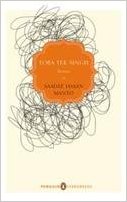Manto Sahib’ to his intimate friends and simply ‘Manto’ to millions of his readers in India, Pakistan and elsewhere, Saadat Hasan Manto, the great maverick and an enigmatic literary giant, was undoubtedly different things to different people. It would not be an exaggeration to say that there are as many Mantos as there are people who knew him or readers who loved him or translators who accessed him. He was one of those rare specimens of humanity, whom everyone loved to hate while he was around, but whom almost everyone was eager to canonize, once he was dead and gone. During his lifetime, Manto had the dubious distinction of being owned and disowned by all those who came into contact with his writings or him. While ‘imperialists’ hounded him on the charges of ‘obscenity,’ their ‘toadies’ bailed him out on the grounds of ‘artistic innocence.’ Modernists hailed him as ‘a stalwart among the progressives,’ while progressives dubbed him as a ‘renegade’ or a ‘reactionary.’ Reactionaries were always eager to dub him as a ‘licentious leftist,’ even though he had absolutely no qualms about lampooning the ‘progressives’.
While all this went on, in its own swirling absurdity, the custodians of conventional morality stood guard, waiting to pounce on him every time he wrote a new story, forever ready to condemn him as a ‘purveyor of sex and filth’. At the end of it all, one is almost prompted, even at the risk of sounding somewhat churlish,

